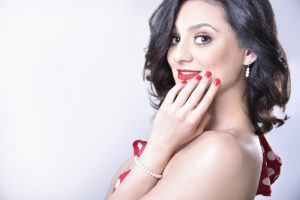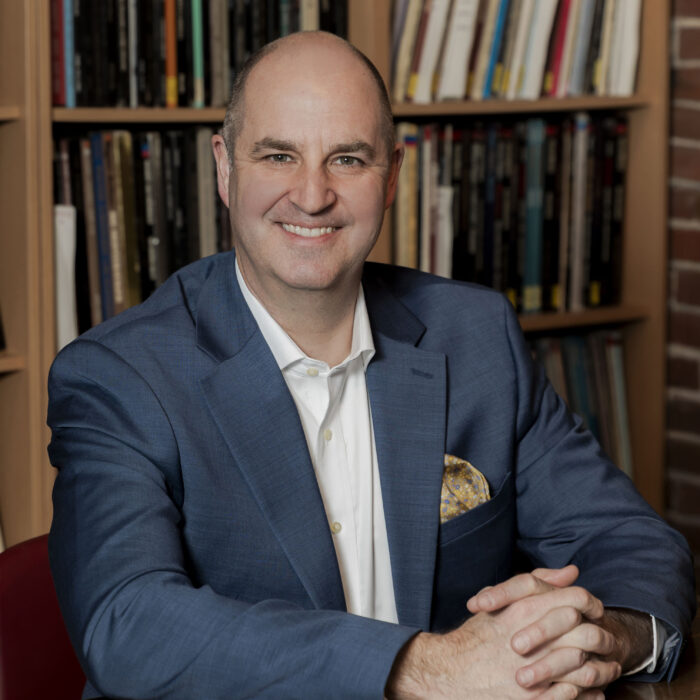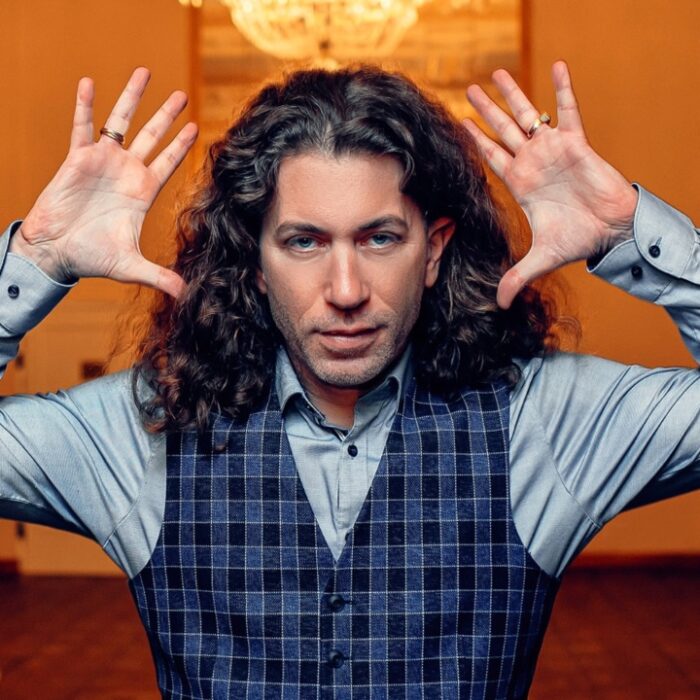
Q & A: Raffaella Lupinacci On Her Work At Wexford Festival Opera & Festival Della Valle D’Itria
By Alan NeilsonOften attention is focused on the stars of the opera world, but below the stellasphere there exist thousands of other singers, directors, conductors, and musicians pursuing their careers. Some are fairly well established and make comfortable livings on the stage and in the concert halls, some struggle to maintain a full calendar, while others are winding down as retirement approaches, and then there are the young singers, seeking to establish their reputations and build a career for themselves, some of whom are destined to become tomorrow’s stars.
One young singer who is currently building a healthy reputation for herself is the talented Italian mezzo-soprano, Raffaella Lupinacci. Having recently seen her perform with considerable success at both the Wexford Festival and now at the Festival della Valle d’Itria, OperaWire spoke to her about career and her future goals.
OperaWire: How and why did you become an opera singer?
Raffaella Lupinacci: I don’t come from a family of musicians or singers, but my father loved music. So I was encouraged to study music when I was very young. I was six years old when I started to play the piano, but I always had a predisposition for singing. So I joined a local choir and I stayed with them for four years. When I was 16, I went to the conservatory in Cosenza, and I began to understand what singing really is because up to this point I had never seen an opera. I also started to study singing privately. At this point, however, I didn’t have any definite plans, I just followed my instincts: I gave up the university and went to Rome, at 21, to study with a private singing tutor – but only for one day, every two weeks, and this meant a lot of travelling to and from Rome. After four years, I decided to change teachers, as there were complications over my training, and I moved to Bologna. I started again from zero. For eight or nine months, I had to re-do all the basic technical work, and then my teacher said, ok, now you can start singing arias. So I started learning arias by Rossini, Mozart, and Vivaldi. In 2011 I decided to audition for the academy in Pesaro, with Maestro [Alberto] Zedda. I was accepted, and so my professional career started. I worked in Pesaro for five years.
OW: Last October you sang at the Wexford Festival and made a very good impression in the role Neris in the opera “Medea.” What were your impressions of the Wexford Festival?
RF: I loved the festival because there is a lot of enthusiasm there. They give a lot of attention to the singers; they respect the singers and this is something very important to me. They are also prepared to help you in any way they can if you have a musical problem – you only need to ask. It is a festival where there is no stress, although there are high expectations! It was a wonderful experience, with a family atmosphere. The public was also wonderful. It was a great experience. I remember a colleague telling me before I went to Wexford, that it is always cold, it rains every day and there is no sun. But it was not true, the weather was good, most days were sunny. I loved it! I would be happy to sing there again. I was also happy to sing the role of Neris. It allowed me to show off my singing ability, and my voice was in good shape.
OW: How does the Festival della Valle d’Itria compare to Wexford?
RL: It is a good festival. In some ways, it is similar to Wexford. They have the same respect for the singers, they give you lots of attention, but like Wexford, the expectations are very high. Similarly, there is no stress, no anxiety. Alberto Triola, the Artistic Director, is always around, he scrutinizes everything, but he does it with a smile, there is no stress, he cares, so you don’t fear him. Musically, it has been a good experience. Sesto Quatrini, the conductor for “Giulietta e Romeo,” is very good in rehearsals, he prepares you so well. Also, the director, Cecilia Ligorio, was excellent to work with, she is a woman of the theatre. She did a lot of coaching on developing the characters of the opera. Even though the opera is a tragedy, it was really good fun! More importantly, the experience has allowed me to grow as a singer and as an actress, and at this stage in my career, it is important for me to develop.
It was also great working with these people because I prefer directors and conductors who give me the space to introduce my own ideas, after all, it’s a collaboration. I don’t like a conductor who says you must sing that, in this way. It is important for singers to see a conductor who is calm, and who smiles. If you look at the conductor and he is tense and anxious, then it is not good for the singer.
OW: You are playing the role of Romeo in Vaccaj’s “Giulietta e Romeo” at the festival. What are your thoughts about the opera?
RL: This is a wonderful opera. There are many beautiful moments. The first duet between Romeo and Giulietta, in the first act, is fantastic. Also, the final scene of the opera is more interesting than Bellini’s finale. Malibran preferred it, and put it into her performances of Bellini’s “I Capuleti e I Montecchi.” We don’t know this opera anymore, probably because five years later Bellini wrote “I Capuleti e I Montecchi” which is probably a better opera. But Vaccaj’s opera has moments of very special music. Although in many parts of the opera, you are sure that you are listening to Rossini.
OW: How would you describe your voice, and how well does it suit the role of Romeo?
RL: My voice is unlike other voices; it is very unusual. I have an extension, with high notes, but with the color of a mezzo. So at first, this made it difficult for me to understand what repertoire would best suit my voice.
The role of Romeo has been an interesting challenge. It was written for a contralto, whereas I am a mezzo and in this production, a mezzo was chosen for the role so that is how I will sing it. As with all art, it is a question of taste. I have a wide vocal range so I have a lot of flexibility. I decided to insert variations that are suitable for my voice; for example in the cabaletta of the first aria, I sing a B natural and then drop down two octaves, which is ideal for my voice.
OW: Romeo is a trouser role, and it is not your first. You have also sung Cherubino, for example. what are the challenges of portraying these roles and what are some of the rewards?
RL: I love to sing trouser roles because you enter into a new way of thinking, and maybe I prefer it to that of a woman. You can feel the testosterone. Cherubino and Arturo in “Rosmonda d’Inghilterra” whom I also played are men, but there is a part of them which is very feminine. There is an ambiguity, they are young men, and therefore, have the nervousness of a woman. Sometimes Cherubino can appear so feminine, that I think of him as a woman. But I really enjoy playing these roles. and I think I make a good man.
OW: What are your plans for the rest of 2018?
RL: First I am going to South Korea to sing Dorabella in “Cosi Fan Tutte,” then I will sing Isabella in Rossini’s “L’italiana in Algeri” in Sassari in mid-October. Then I will be singing Donna Elvira in Bologna, with Michele Mariotti, in “Don Giovanni.” I am really looking forward to this because I love the role, and the Teatro Comunale, Bologna has wonderful acoustics. And, of course, it is also my home city and it is the second time I will sing there.
OW: It is not the first time you have performed Donna Elvira. Tell me some of the challenges of the role?
RL: It is a magnificent but challenging role. The tessitura is very high but it requires a mezzo-soprano richness. Each time I perform it, I study it in depth until it becomes natural for my voice. In the end, I am rewarded by the great satisfaction it gives me.
OW: What are some of your long-term goals?
RL: At the moment I want to sing a lot more Rossini and Mozart. I would like to sing Rossini serio – “La Donna del Lago,” “Semiramide” and “Ermione,” for example, but they must be roles that suit my voice. Then there is bel canto. I want to sing Donizetti and Bellini, and hopefully I will soon sing Giovanna Seymour from “Anna Bolena” and Sara from “Robert Devereux.” I eventually want to sing some of the French repertoire, which I like a lot. I hope to be able to carry on singing in the roles best suited to my voice and to my musical and dramatic temperament, performing for theatres and festivals where the audience is discerning and appreciative.
OW: What advice would you give to new singers?
RL: Thanks to the internet, today’s young singers get the chance to listen to both the great voices of the past and to those of our times and to hear them singing on the world’s most prestigious stages. It is a wonderful opportunity. It is also essential to study seriously with a teacher who knows exactly what your voice can do and gives you the right repertoire. It is equally important to give your voice the time it needs.


